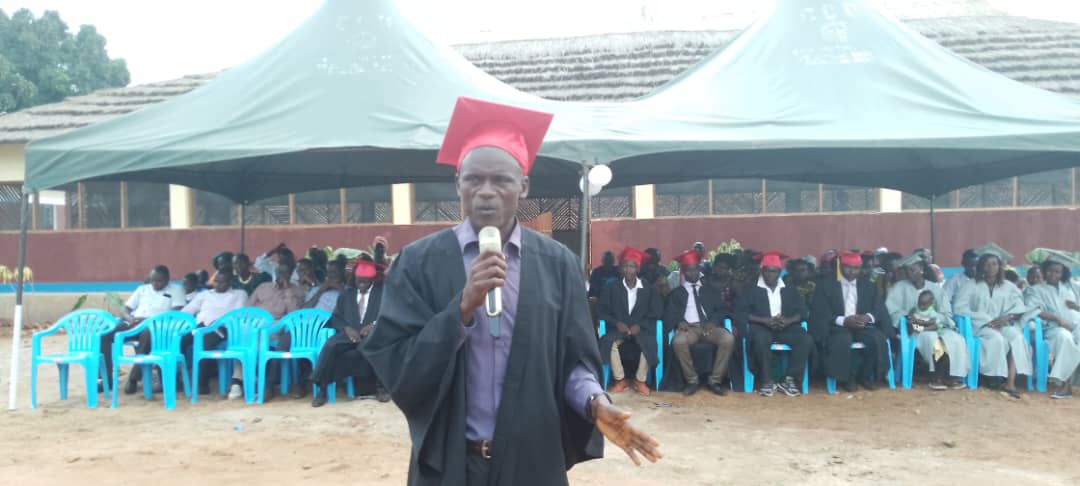13 students have graduated from Nzara Agricultural Training Center in Western Equatoria state on Tuesday after undergoing four months of intensive training.
They include 10 men and 3 females.
“They have been for training for four months in general agriculture comprising of 10 subjects including sustainable live hood, farming, livestock, extension beekeeping, agro-business and cooperatives, ” said James Mabo who is the founder of the center
A tutor at the same time, Mabo says, the main aim of the training is to enhance food security in South Sudan
Mabo believes agriculture is the only way to alleviate poverty and is encouraging South Sudanese to farm to tackle the economy challenges.
“Our main aim is to enhance food security situation in South Sudan. I think there’s no others means to alleviate the level of poverty except when people go to farming.
“We we are encouraging everyone to farm food agriculture inorder for our country to tackle our economy problems.
The training center graduated a first batch of 68 students in 2019, but according to Mabo, the number has dwindled over the years due to unknown reasons.
One of today’s graduates, James Martin who is a journalist by profession, is urging the government to prioritize agriculture in the country.
This is because he said, the government and non-governmental organizations do not adequately support the sector.
“Am also appealing to our government to support agriculture more than everything, I think that is the biggest and biggest challenge that we face,” he implores.
Meanwhile Alison Mordecai who enrolled in the center due to limited employment opportunities says, the training has transformed him from a job seeker to a job creator.
” Now I am ready to create my own jobs to plant my crops and take to the market to make more money instead of looking for jobs from the government,” he said.

